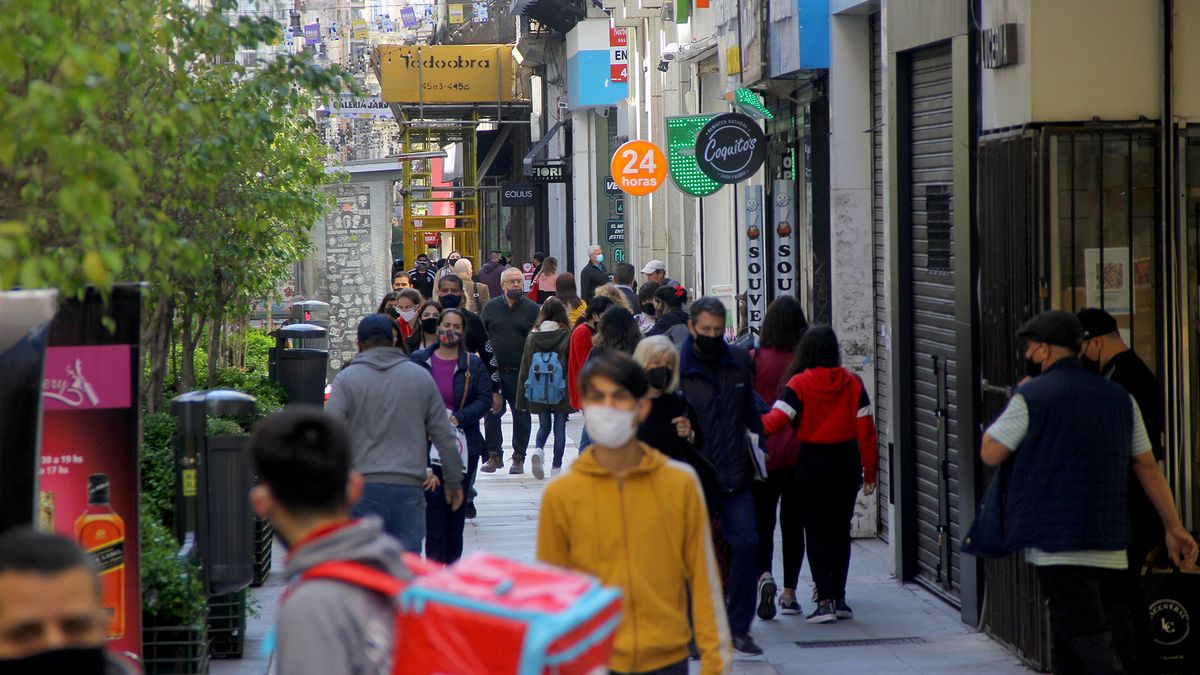“This slowdown is part of two years that will be very different for the Argentine economy: in 2022, the GDP will close with a growth of 5.5% driven by a better first semester with a slowdown in activity from the second; while 2023 drags little inertia and could end in just one point”, they added from the firm.
They also detailed that consumption has two key factors: the purchasing power of wages and financing options. “In this framework, the real salary in 2022 did not lose what was expected against inflation due to the opening of parities and permanent negotiations. It closes the year at -0.4% for private registered workers, which partly explains the support of mass consumption and semi-durable goods”, they detailed.
The extension of the programs NowMeanwhile, they encouraged the consumption “of household appliances and consumer electronics as a safeguard of value, but, above all, as an alternative to place surplus pesos in a scenario with relative price distortions and high inflation.”
“Because, 2022 closed with a positive balance, driven by higher consumption in the first half of the year with signs of a slowdown that began to be registered as of July”, They detailed from the firm.
Consumption: outlook for 2023
Consumption growth slowed in the second half of last year. “The second semester of last year was more complicatedfor various reasons, such as mainly macroeconomic restrictions, that were seen especially in the last quarter. Especially, it was for the retraction of disposable income: there was a drop in real income, which began to be noticed beyond the inflationary acceleration,” he explained to Ambit Matías Bolis Wilson, Chief Economist of the Argentine Chamber of Commerce and Services (CAC).
“In other words, what the inflationary acceleration produces is that people want to get rid of the pesos and that can help in some types of goods. But, generally speaking, consumption is not helped by inflationno, on the contrary. Inflation erodes it. So, you are in a complex situation. And, in addition, the restrictions of the entire macroeconomy operate, especially in the foreign exchange market and imports”, added Bolis Wilson.
In this scenario, with a view to what may happen in 2023, the Chief Economist of the CAC pointed out: “On the one hand, I think the government is going to want to encourage consumption, especially since it is an electoral year, and that tightens the external side a bit.: more than 85% of what is imported is for production; So, if you want to encourage consumption, you will need to feed it with something. And that is fed with production. It’s a whole chain. When you want to increase production, you will need to import. And dollars are going to be needed”.
Inflation, logically, is another aspect that can affect consumption. “If you want to encourage consumption in a hot economy in terms of prices, you are promoting, somehow some price acceleration. It is difficult, because the Government has to maintain a lot of balances. The economy is that. It is a difficult path, with a complex macro. For this reason, I find it difficult to maintain consumption at high levels. It is going to be a difficult year”, detailed Bolis Wilson.
The uncertainty that is usually generated in election years, remarked the specialist, can also influence consumption: “Uncertainty also generates problems in consumption. Especially, due to the level of activity and level of employment. And expectations play an important role in consumption. And the more uncertainty you have, I think people are going to try to save a little bit. Although the level of savings will also fall. But without access to international markets, without having a flow of direct foreign investment to compensate you, how are you going to grow without savings? That’s the big question”.
Source: Ambito
David William is a talented author who has made a name for himself in the world of writing. He is a professional author who writes on a wide range of topics, from general interest to opinion news. David is currently working as a writer at 24 hours worlds where he brings his unique perspective and in-depth research to his articles, making them both informative and engaging.




